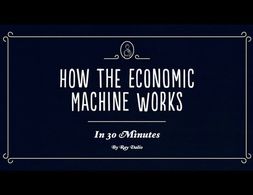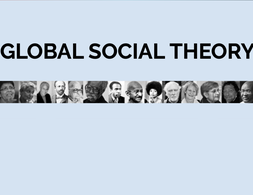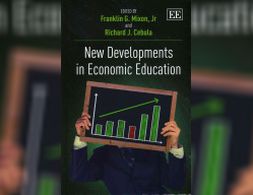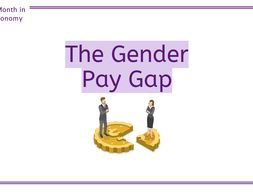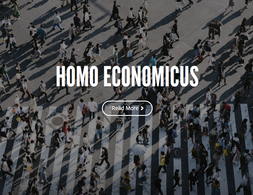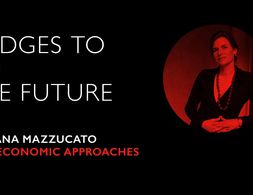✕
976 results
This paper attempts to clarify how the European economic crisis from 2007 onwards can be understood from the perspective of a Marxian monetary theory of value that emphasizes intrinsic, structural flaws regarding capitalist reproduction. Chapter two provides an empirical description of the European economic crisis, which to some extent already reflects the structural theoretical framework presented in chapter three. Regarding the theoretical framework Michael Heinrich's interpretation of 'the' Marxian monetary theory of value will be presented. Heinrich identifies connections between production and realization, between profit and interest rate as well as between industrial and fictitious capital, which represent contradictory tendencies for which capitalism does not have simple balancing processes. In the context of a discussion of 'structural logical aspects' of Marx's Critique of the Political Economy, explanatory deficits of Heinrich's approach are analyzed. In the following, it is argued that Fred Moseley's view of these 'structural logical aspects' allows empirical 'applications' of Marxian monetary theories of value. It is concluded that a Marxian monetary theory of value, with the characteristics of expansive capital accumulation and its limitations, facilitates a structural analysis of the European economic crisis from 2007 onwards. In this line of argument, expansive production patterns are expressed, among other things, in global restructuring processes, while consumption limitations are mitigated by expansive financial markets and shifts in ex-port destinations.
As opposed to the conventional over-simplified assumption of self-interested individuals, strong evidence points towards the presence of heterogeneous other-regarding preferences in agents. Incorporating social preferences – specifically, trust and reciprocity - and recognizing the non-constancy of these preferences across individuals can help models better represent the reality.
In this essay, the principle of capital accumulation, as well as the idea of homo economicus as the basis of the growth model, are located and analyzed from a feminist perspective. The sufficiency approach is presented as an alternative to these two economic logics.
With a focus on Chile, Pinochet’s Economic Accomplices: An Unequal Country byForce uses theoretical arguments and empirical studies to argue that focusing onthe behavior of economic actors of the dictatorship is crucial to achieve basic objectivesin terms of justice, memory, reparation, and non-repetition measures.
This book gives a very clear overview of the history of Macroeconomics and how it has evolved. It reflects on the different perspectives and debates that have defined the field, with valuable insight into the history and theory of economic policy.
The 2007-2008 financial crisis exposed the shortcomings of mainstream economic theory with economists unprepared to deal with it. In the face of this, a major rethinking of economics seems necessary and in presenting alternative approaches to economic theory, this book contributes to the rebuilding of the discipline.
With the onset of an economic crisis that has been universally acknowledged since the end of March, two main questions arise: To what extent is the corona pandemic the starting point (or even the cause) of this crisis? And secondly: can the aid programmes that have been adopted prevent a deep and prolonged recession?
The author identifies three principal economic phenomena, which are explained: long run productivity growth as the central driver of increasing economic activity, short-term and long-term debt cycles. The latter two are explained to some detailed with reference to money creation, central banking and long term crisis tendencies. With regards to the long run debt cycle, which leads into deleveraging and recession, some policy measures which can smoothen the crisis are discussed.
New Tools of Economic Dynamics gives an introduction and overview of recently developed methods and tools, most of them developed outside economics, to deal with the qualitative analysis of economic dynamics. It reports the results of a three-year research project by a European and Latin American network on the intersection of economics with mathematical, statistical, and computational methods and techniques.
Study of the German Council of Economic Experts on the potential economic effects of a comprehensive energy embargo against Russia
Global Social Theory is a large wiki-like project by Gurminder K Bhambra. Its central aim is decolonising and diversifying universities, production of knowledge, and social thought in general.
It represents a large online library divided into three parts: concepts, thinkers, and topics in/of social theory and decolonial thought. Every part comprises of short, introductory articles on an according theme. It may be helpful to give you a general overview (and a list of basic readings) on the most essential areas of social theory: caste, class, and race; civil society; racism; secularism; feminism and many others.
It may also allow students whose university curriculum in sociology, economics, or other social sciences lacks diversity to compensate for that.
In spite of the manifold critique about the state of economics in the aftermath of the financial crisis, an even increasing presence of economists and economic experts can be observed in the public sphere during the last years. On the one hand this reflects the still dominant position of economics in the social sciences as well as the sometimes ignorant attitude of economists towards findings of other social sciences. On the other hand this paper shows that the public debate on politico-economic issues among economists is dominated by a specific subgroup of economists, tightly connected to an institutional network of “German neoliberalism”. This group of “public economists” (i) is dominant in public debates even after the financial crisis, (ii) reproduces the formative German economic imaginary of the Social Market Economy in a German neoliberal interpretation and (iii) has a good access to German economic policymaking, rooted in a long history of economic policy advice.
Since the 1980s, the financial sector and its role have increased significantly. This development is often referred to as financialization. Authors working in the heterodox tradition have raised the question whether the changing role of finance manifests a new era in the history of capitalism. The present article first provides some general discussion on the term financialization and presents some stylized facts which highlight the rise of finance. Then, it proceeds by briefly reviewing the main arguments in the Marxian framework that proposedly lead to crisis. Next, two schools of thought in the Marxian tradition are reviewed which consider financialization as the latest stage of capitalism. They highlight the contradictions imposed by financialization that disrupt the growth process and also stress the fragilities imposed by the new growth regime. The two approaches introduced here are the Social Structure of Accumulation Theory and Monthly Review School. The subsequent part proceeds with the Post-Keynesian theory, first introducing potential destabilizing factors before discussing financialization and the finance-led growth regime. The last section provides a comparative summary. While the basic narrative in all approaches considered here is quite similar, major differences stem from the relationship between neoliberalism and financialization and, moreover, from the question of whether financialization can be considered cause or effect.
The course will teach students to analyze the goals, implementation, and outcomes of economic policy.
This is an overview of (possibly transformative) proposals to address the economic consequences of the corona crisis
The course will teach students to analyze the goals, implementation, and outcomes of economic policy.
"Despite the rediscovery of the inequality topic by economists as well as other social scientists in recent times, relatively little is known about how economic inequality is mediated to the wider public of ordinary citizens and workers. That is precisely where this book steps in: It draws on a cross-national empirical study to examine how mainstream news media discuss, respond to, and engage with such important and politically sensitive issues and trends.
This article by Rüdiger Bachmann et.al. discusses the economic effects of a potential cut-off of the German economy from Russian energy imports.
"Why information grows" by Cesar Hidalgo and the atlas of economic complexity. César visits the RSA to present a new view of the relationship between the individual and collective knowledge, linking information theory, economics and biology...
This innovative book offers targeted strategies for effectively and efficiently teaching economics at both undergraduate and postgraduate levels. It provides professors and other teachers of economics various techniques to engage and retain the interest of students, and challenges them to apply both knowledge and methodological tools to a range of economic problems.
The gender pay gap is a pressing issue that affects individuals and society as a whole, so it is important for economics students to understand it. Despite recent progress, women still earn less than men for the same jobs, leading to economic inequalities and reduced efficiency (see, for example, the recent report released by Moody’s). Understanding the causes and consequences of the gender pay gap is critical in developing policies that promote fairness and equality.
In this talk, Eric Beinhocker outlines his ideas of how to ensure a just and sustainable future for Humanity: This includes his interesting Russian Doll approach to unpacking 20th-century economics and proposals of new theories to underpin a new economic system.
The Atlas of Economic Complexity is an award-winning data visualization tool that allows people to explore global trade flows across markets, track these dynamics over time and discover new growth opportunities for every country.
Have you ever wondered why it is so difficult to follow through on new year’s resolutions, such as to exercise more or to start saving more money towards retirement? The agent that most traditional economic models are based on would not struggle to keep up these resolutions. These agents are referred to as homo economicus.
The COVID-19 pandemic has had far-reaching implications across the African continent. This discussion brings to light the role of African think tanks, such as the African Center for Economic Transformation (ACET) in rethinking the continent’s development models, especially, in light of the unprecedented crisis.
Exploring Economics, an open-access e-learning platform, giving you the opportunity to discover & study a variety of economic theories, topics, and methods.
An increasing number of older women are facing uncertain economic futures. The Women in Economics Network (WEN) in Australia hosted a webinar to explore the emerging situation and public policy responses that can reduce the number of older women at risk of experiencing poverty and homelessness.
Yao Graham, coordinator of Third World Network- Africa, reflects on lessons learned from past Economic Partnership Agreements (EPAs), specifically as they relate to the Post-Cotonou Agreement.
In this episode of Jacobin radio, James K. Galbraith elaborates on the economic policies for the corona crisis, and Aaron Benanav on the crisis of unemployment. James K Galbraith also discusses why the economy as currently organized has been unable to deal with the challenges of the pandemic.
In this interview Mariana Mazzucato talks about economic actions governments need to take facing the Corona-crisis. Using the example of Britain, she argues that governmental bailouts need to be bound to commitment to sustainability.
This article provides a contextual framework for understanding the gendered dimensions of the COVID-19 pandemic and its health, social, and economic outcomes. The pandemic has generated massive losses in lives, impacted people’s health, disrupted markets and livelihoods, and created profound reverberations in the home. In 112 countries that reported sex-disaggregated data on COVID-19 cases, men showed an overall higher infection rate than women, and an even higher mortality rate. However, women’s relatively high representation in sectors hardest hit by lockdown orders has translated into larger declines in employment for women than men in numerous countries. Evidence also indicates that stay-at-home orders have increased unpaid care workloads, which have fallen disproportionately to women. Further, domestic violence has increased in frequency and severity across countries. The article concludes that policy response strategies to the crisis by women leaders have contributed to more favorable outcomes compared to outcomes in countries led by men.
Looking for a pithy introduction into John Maynard Keynes's economic thinking? This BBC radio programme may be it.
We use cookies on our website. Click on Accept to help us to make Exploring Economics constantly better!








